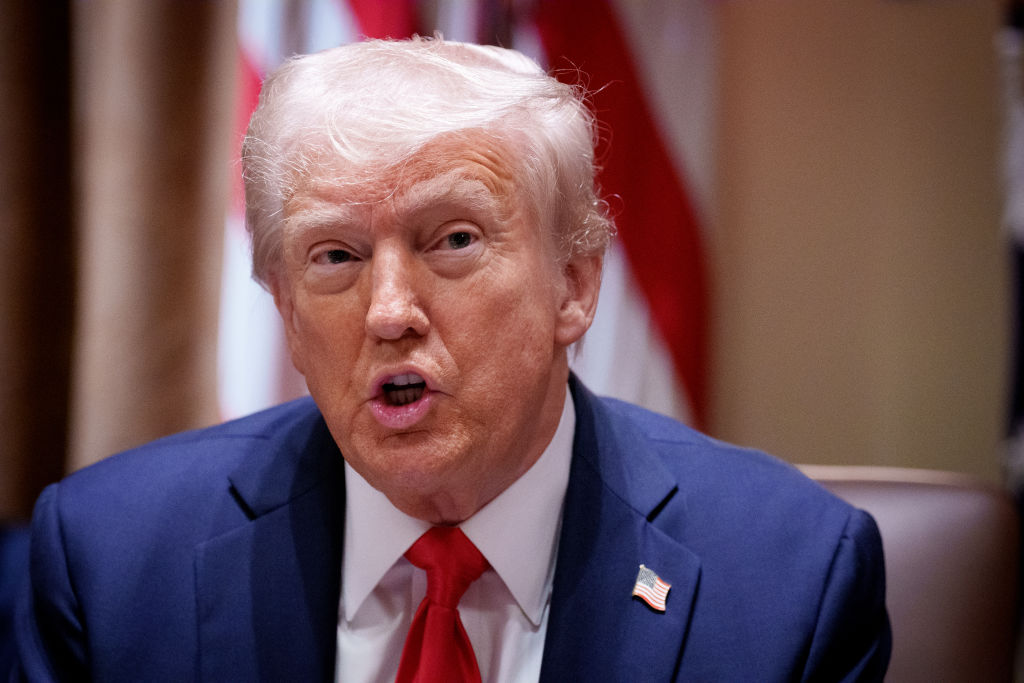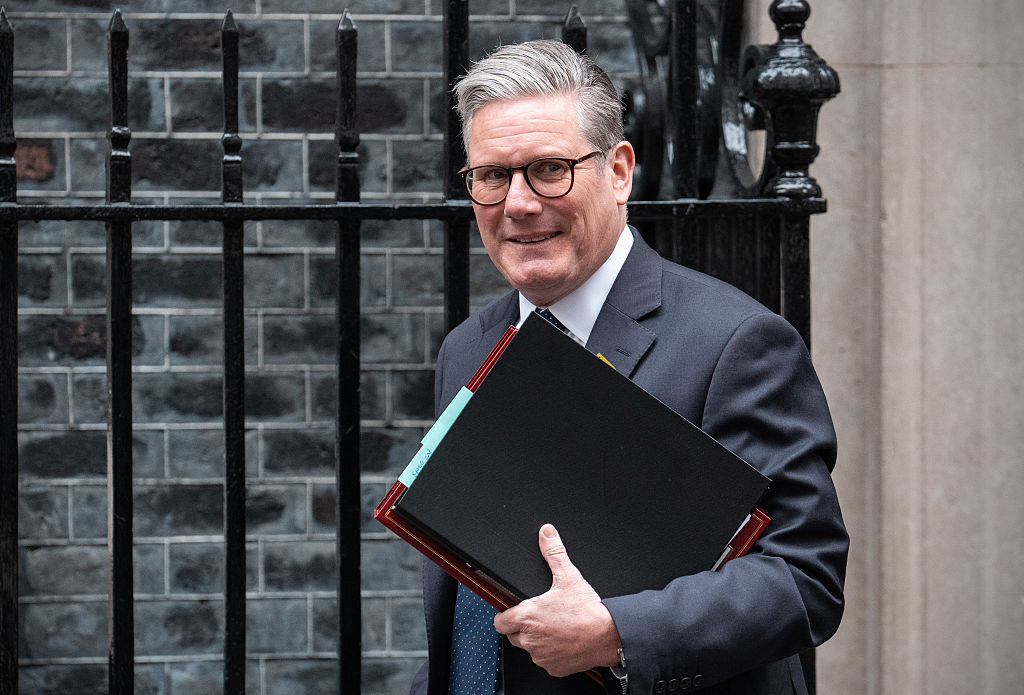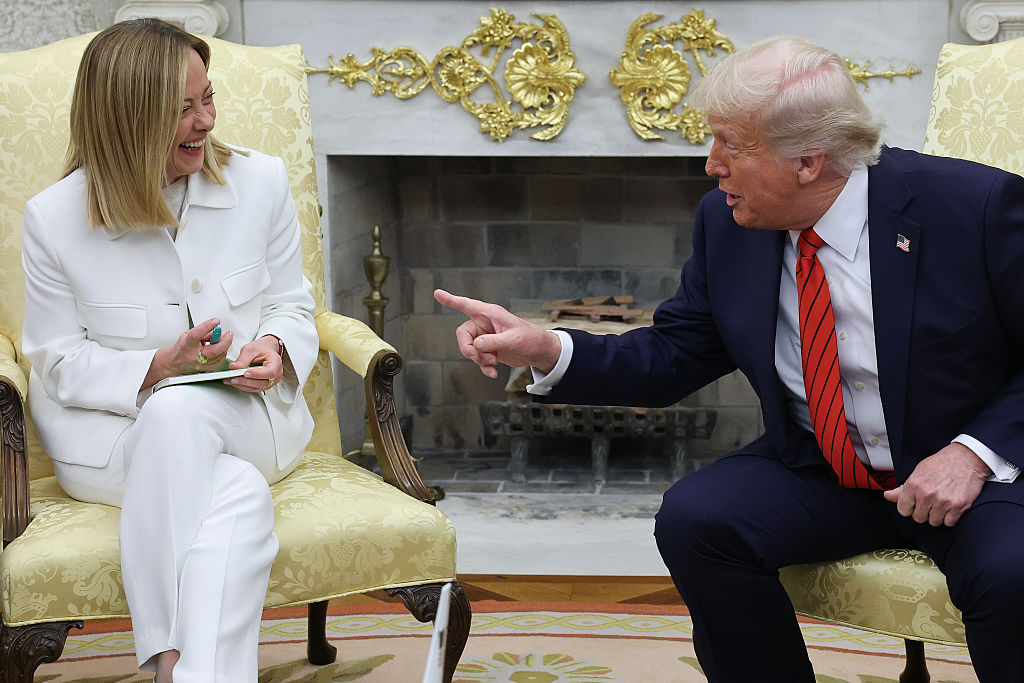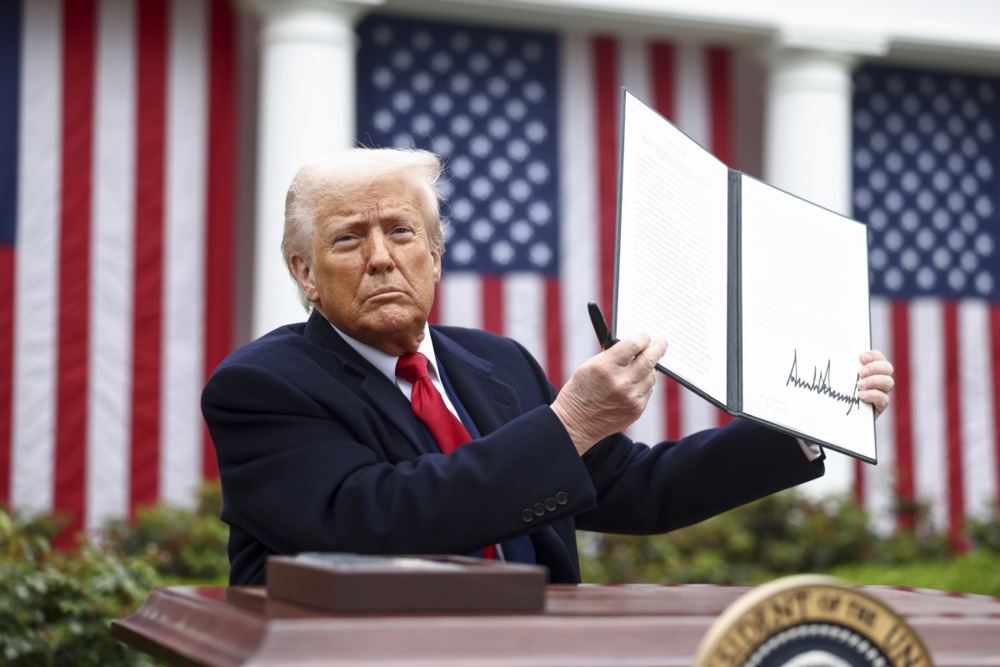US President Donald Trump and British Prime Minister Keir Starmer have announced a “breakthrough deal” on trade that left in place a 10 per cent tariff on goods imported from the UK, while Britain agreed to lower its tariffs to 1.8 per cent from 5.1 per cent and provide greater access to US goods.
The agreement announced by Trump from the Oval Office alongside British Ambassador to the US Peter Mandelson on May 8 marked the first since he triggered a global trade war with a barrage of levies on trading partners following his return to the White House in January.

“It opens up a tremendous market for us,” Trump said, while Starmer added: “This is a really fantastic, historic day.”
The US has been under pressure from investors to strike deals to de-escalate its tariff war after Trump’s often chaotic policymaking upended global trade with friends and foe alike, threatening to stoke inflation and start a recession.
Top US officials have engaged in a flurry of meetings with trading partners since the President on April 2 imposed a 10 per cent tariff on most countries, along with higher rates for many trading partners that were then suspended for 90 days.
Washington has also imposed 25 per cent tariffs on vehicles, steel and aluminium, 25 per cent tariffs on Canada and Mexico, plus 145 per cent tariffs on China.
US and Chinese officials were due to hold talks in Switzerland on May 10.
With the British economy struggling to grow, the tariffs had added to the pressure on Starmer’s Labour administration.
In the automotive sector, UK luxury vehicle manufacturer Jaguar Land Rover had paused its shipments to the US for a month and the British Government had been forced to seize control of British Steel to keep it operating.

US Commerce Secretary Howard Lutnick said that Washington would also allow duty-free imports for Rolls-Royce jet engines.
The deal with Trump would reduce US tariffs on British auto imports to 10 per cent from the current 27.5 per cent, according to a UK statement. The lower rate will apply to a quota of 100,000 British vehicles, almost the total exported to the US last year.
US tariffs on imports from the struggling UK steel industry would fall to zero from 25 per cent, while British tariffs on US ethanol would fall to zero from 19 per cent.
Both sides have agreed new reciprocal market access on beef – with UK farmers given a tariff-free quota for 13,000 metric tonnes. There would be no weakening of UK food standards on imports.
Lutnick said Britain was expected to announce a purchase of $10 billion (€8.9 billion) worth of US-assembled Boeing aircraft, although a White House graphic referred to “aircraft parts”.

The Commerce Secretary said the deal would create $5 billion (€4.4 billion) in new annual export opportunities for US producers, while the new tariffs that stayed in place would produce $6 billion (€5.3 billion) in annual new US revenue.
The UK backlog included unfulfilled orders for 109 planes from airlines and 40 for a leasing company, according to Boeing’s website. Based on the models ordered, UK companies had an estimated $12 billion-plus (14.1 billion) worth in planes due from Boeing.
Boeing has been trying to ramp up production of its strongest selling 737 MAX jet to a rate of 38 a month this year, after a difficult 2024 when output slumped due to a broad quality crisis that led to the replacement of its CEO Dave Calhoun with Kelly Ortberg on August 8 last year.

Lutnick indicated the deal was a private-sector purchase, saying he would let the airline making it announce the details. The White House’s graphic with the broad terms of the deal referred to $10 billion in “aircraft parts” purchases, without further details.
It was not clear what kind of planes would be involved in the deal and whether any agreement would involve firm orders or options. Boeing declined to comment.
International Airlines Group, whose subsidiary British Airways operated several Boeing wide-body jets within its fleet, was not immediately available for comment.
UK-based Virgin Atlantic, whose president is Richard Branson and which operated Boeing planes, said it was not involved in a deal.

While seeking a deal with Washington, Britain had refused to lower its food standards, which were closely aligned with the European Union.
The UK’s farming trade union, though, has said that some US producers who did not use growth hormones or anti-microbial washes could be given greater market access.
Trump said the 10 per cent “baseline” tariff would stay in place and that other countries may face higher reciprocal tariffs even as they negotiated similar trade deals with the US.
Details were scant on tariffs on UK pharmaceuticals imports, which could damage AstraZeneca and GSK, although a White House fact sheet said the deal would create a secure pharma supply chain.

Economists and an unnamed FTSE 100 CEO said the immediate economic impact of the tariff deal was likely to be limited but that trade agreements in general would help long-term growth.
The UK had struck a free-trade agreement with India on May 6.
There were also domestic political risks. Polling showed the UK Government has remained deeply unpopular, making any move to cut taxes on multi-national tech companies a big risk.
Britain’s digital service tax, levied at 2 per cent of UK revenue for online marketplaces, would continue unchanged under the US deal.
It was expected to raise about £800 million (€7 billion) this year but companies such as Google and Amazon have passed the cost on to customers through ad surcharges and higher selling fees, respectively.
A British official said on May 8 that Washingtons had also pushed for a restructuring of the UK’s digital services tax but that was not agreed to in the trade deal. The official said the US could revisit the issue but there was no agreed process for doing so.
“This is not a finished, classic ‘bells and whistles’ free trade agreement. It started off as a tactical response to President Trump’s tariffs, but actually morphed into a more substantive trade deal,” the official said, who requested anonymity.
“And it will be built on … We’ve done the Oval Office, now we’ve got more serious work to do.”
The unnamed FTSE CEO said: “The American, Indian and other deals we can do will be really important to the long-term economic health of the UK but don’t expect them to result in overnight euphoria.”





